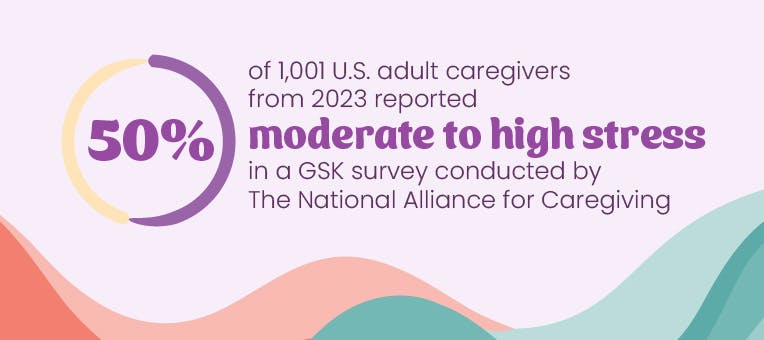You are about to leave OurWayForward.com.
You are about to leave a GSK website. By clicking this link, you will be taken to a website that is independent from GSK. The site you are linking to is not controlled or endorsed by GSK and GSK is not responsible for its content.
Caring for Your Loved One
Being a caregiver can mean many different things. What is involved depends on where the person you're caring for is in their treatment journey and how they are feeling physically and emotionally. They may want someone to hold their hand at the doctor’s appointment, pick up a few groceries, or simply someone to talk to.
Caring for the Caregiver
Being a caregiver often involves more than simply attending appointments. There is so much that can go into being a caregiver, and often caregivers are still managing their own responsibilities in addition to those of their loved ones. As a caregiver, it’s just as important to take care of yourself and recognize when you need support. Below are some ways you can take care of you.
Accept your feelings
Give yourself permission to feel a full range of emotions.
Talk to friends or family
Share your feelings with loved ones or join a support group.
Take a break
Schedule regular breaks and take some time out for yourself.
Stay active
Participate in physical and recreational activities.
Pursue professional support
Find a therapist who is trained to help.
Make a plan
Write down your self-care goals and take steps towards achieving them.

Recognizing Caregiver Burnout
While being a caregiver can be rewarding, it’s normal for a caregiver to feel overwhelmed at times. Many caregivers experience stress related to their role. Caregiver burnout—a state of exhaustion that can be physical, emotional, and mental, and happens when a person is taking care of someone else—can be easy to miss.
Signs of caregiver burnout may include:
- Changes in sleep
- Feeling worried or overwhelmed constantly
- Changes in eating habits
- Losing interest in activities that used to bring joy
- Feeling sad or depressed
- Delaying personal health needs
If you believe you or someone you love may have caregiver fatigue, encourage them to reach out to a professional for help.


